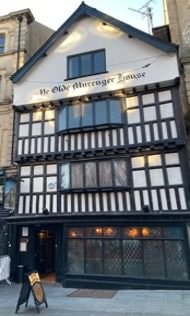Ye Olde Murenger House
by Laura Wainwright
Ye Olde Murenger House, Newport, 2 January 2023
Keeping a journal is an act of endurance. It is easier to decide that your life and experiences are too mundane to merit recording, your observations and reflections irrelevant, egoistic or passé. And there are always other demands on your time and attention – economic, familial, social, technological.
Journal-writing also meets self-consciousness head on. A writer can hide behind, or at least retreat into, the shadowy, polysemous language of a poem or the removed, intellectualised subject of an academic essay. It is for this reason that I know journal-writing would be an excellent writing tool for me. And yet, time and again, my stamina fails me. This goes some way to explain why my last Newport Journal entry for Sustainable Wales was published over a year ago, in September 2021. But it is not the whole story: the rest involves a pub and a book.
In October 2022, I was invited to read my poetry at Ye Olde Murenger House, a pub owned by the Tadcaster brewery, Sam Smith’s, located on High Street in the centre of Newport. The Murenger Open Mic, as it is known, has a different Welsh writer headlining each month throughout the year, and is organised to raise money to support the Cwtsh Community and Arts Centre, based on Stow Hill in the city.
For me – and, I know, for many others – The Murenger or ‘Mury’ is as much a part of the topography of Newport as the River Usk. A constant presence since my late teens, unmistakably local yet outward-looking – with its library, formative role in literary and cultural projects such as Wales Arts Review, and its reputation ‘since time immemorial’, according to one South Wales Argus columnist, ‘as the haunt of art students and others on the fringes of Newport’s minuscule [sic] Bohemia’ (i) – retreating but always rising again to meet me, flowing through the weather and the years.
Inside Ye Olde Murenger House, January 2, 2023
The Murenger is low-lit, as I believe all pubs should be – there is just enough illumination to read or write – and its palette is russet-red and warm, porter-brown. Artworks and memorabilia associated with Newport and historical photographs of the city abound. In the ‘Radical Room’, an enclave or snug in the centre of the pub, these commemorate the Chartist leader, John Frost, who was born close by.
Indeed, one source suggests John Frost operated a drapery business on the site in 1830 (ii). The figure of the ‘Murenger’ was responsible for collecting the ‘murage’ – a tax which paid for the maintenance of the town walls. The original murenger’s house later became a town house owned by the Herbert family of Monmouthshire, and later a pub called the Fleur-de-Lys.
The building as it exists now, with its distinctive name and black and white façade, dates from 1816, although its foundations were laid in the mid 1500’s. There are no televisions and no music; although I remember that when I was about eighteen there was a jukebox and I distinctly recall that it was the first place I heard The Stranglers’ ‘Golden Brown’. Now, the Murenger’s walls and dark-beamed ceilings resound with conversations and the clink of collected glasses. ‘Throughout the night…’, though outside it could just as easily be day.
After my poetry reading in the Murenger I sold eleven copies of my book to members of the audience and gave away two as gifts. The first, I gave to my friend and former colleague at Newport Citizens Advice, Claire Fitzgerald, who also read her work that night. I had left the charity two months earlier, to take up a job in Community Mental Health, that I hoped would allow me to devote more time to my children and to writing.
The second, I gave to Rob Jones, the landlord of the Murenger for as long as I have been going there. He gave me a book in return – a collection of essays by John Berger, Hold Everything Dear. The book’s title is itself taken from a poem of the same name by Gareth Evans:
in the turning air
as the chorus of the earth find their eyes in the sky
and unwrap them to each other in the teeming dark
hold everything dear (iii)
In one essay in the book, ‘Ten Dispatches about Endurance’, Berger writes:
“The poor live with the wind, with dampness, flying dust, silence, unbearable noise (sometimes with both; yes, that’s possible) with ants, with large animals, with smells coming from the earth, rats, smoke, rain, vibrations from elsewhere, rumours, nightfall, and with each other. [. . .] The poor are collectively unseizable. They are not only the majority on the planet, they are everywhere and the smallest event speaks of them. This is why the essential activity of the rich today is the building of walls – walls of concrete, of electronic surveillance, of missile barrages, minefields, frontier controls, and opaque media screens.
Here Berger is, of course, talking about ‘the poor’ on a global scale, including people living in the most deprived societies in the world. But his words suddenly resonated with my experience of working at Newport Citizens Advice for a year.
My job involved speaking daily and at times relentlessly to some of the poorest people in Newport – people sobbing down the phone because bailiffs were threatening to break down their door or take anything they could from their homes; people seeking Debt Relief Orders for council tax, utilities and credit card arrears; parents, the elderly and the chronically unwell requesting help to apply for food parcels, fuel vouchers and once, I will always remember, a grant for blankets because the money was gone; people living in damp, cold, dilapidated, noisy, intimidating or rat-infested homes; refugees living in hotels waiting to hear from the Home Office; tenants served with eviction notices and facing homelessness; vulnerable victims of scams and unscrupulous companies; people unable to work through ill-health, desperate to appeal the DWP tribunal’s decision not to give them financial assistance. And, more than once, a caller whose problems seemed so insurmountable they simply could not endure living anymore.
Moreover, I realised that perhaps this was the real reason why I had been unable to write my Newport Journal for more than a year, and a full five months after I left my job. This was a side of Newport that I had at times glimpsed and thought I understood, of which I was dimly and sympathetically aware, but that I had not experienced at such a raw and intimate level.
I felt saddened, disorientated, unworthy and privileged. Thanks to my poetry evening at the Murenger – some poems, a local pub, a simple exchange of thoughts and words – I have been able to take up my Newport journal again and to write more openly about myself. Call me sentimental, but I framed the publicity poster for the event. It is a daily reminder of how fortunate I have been – and to ‘hold everything dear’.
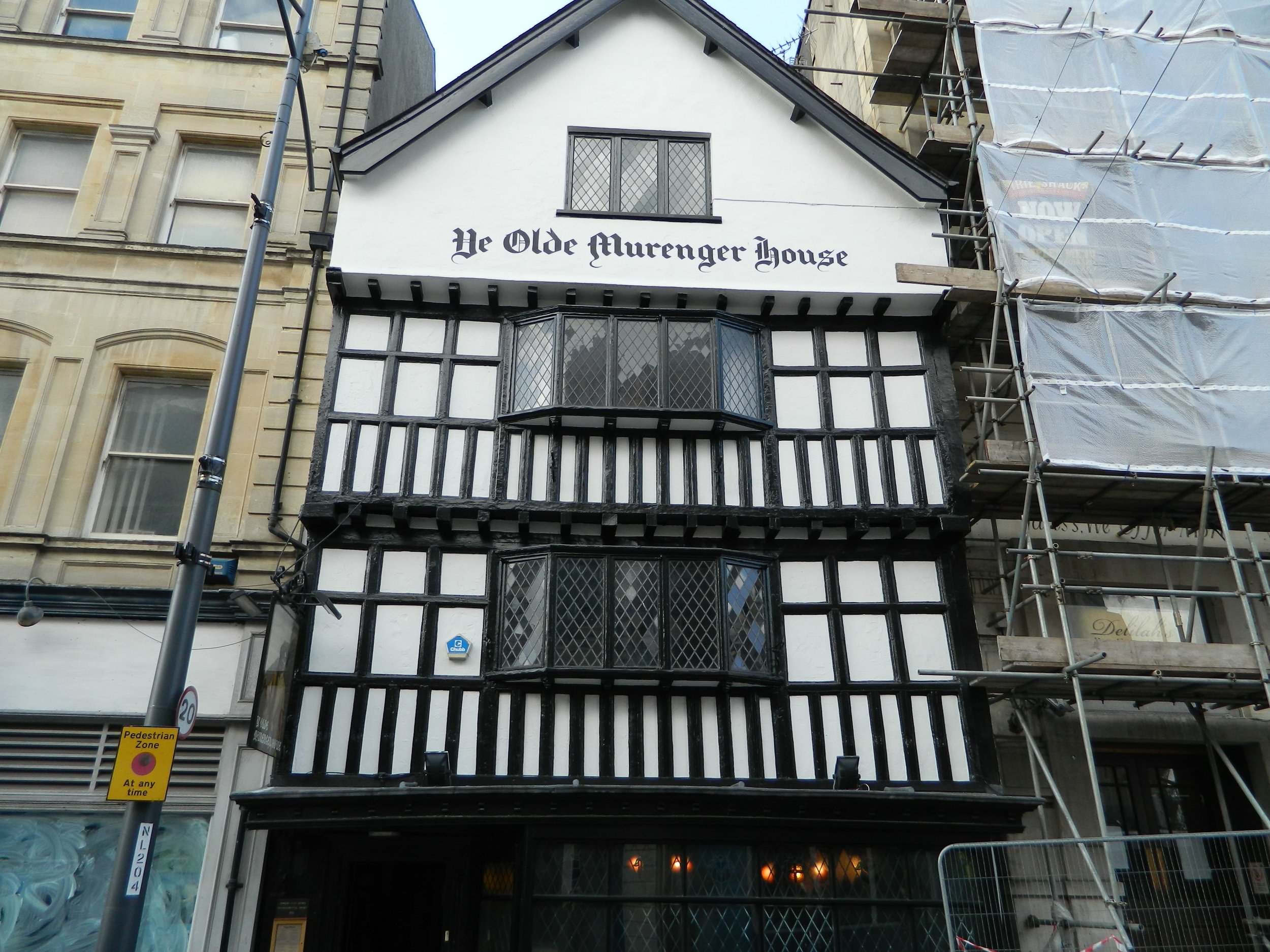
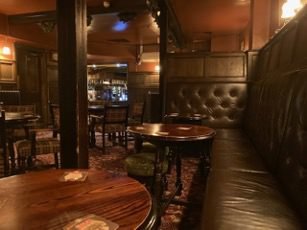
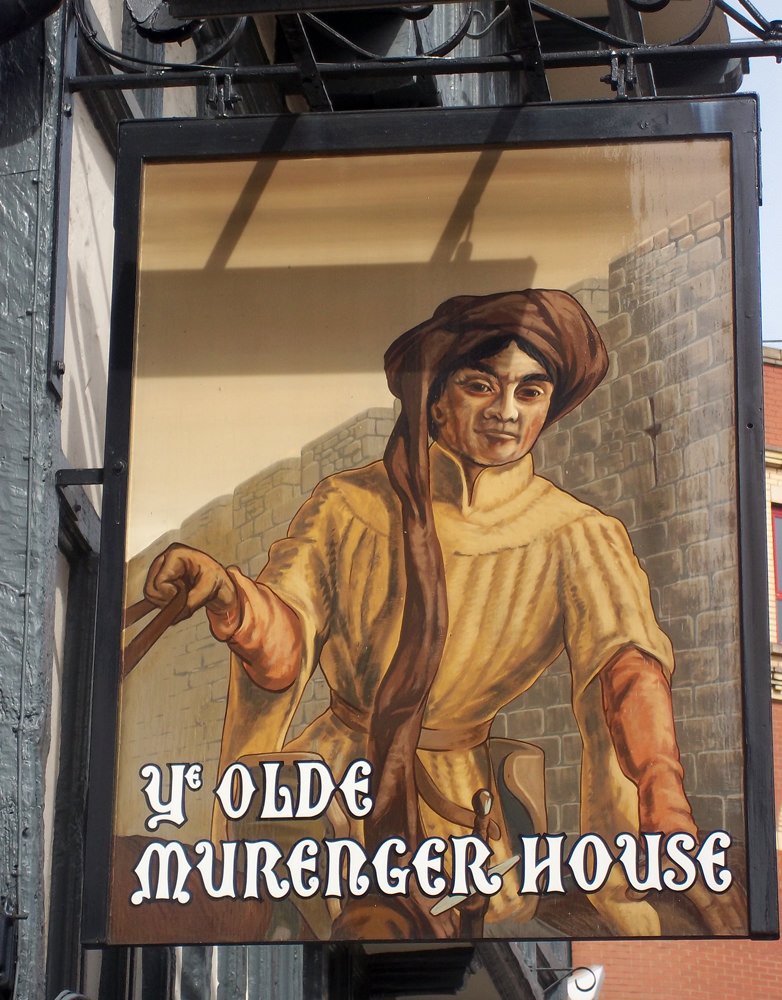
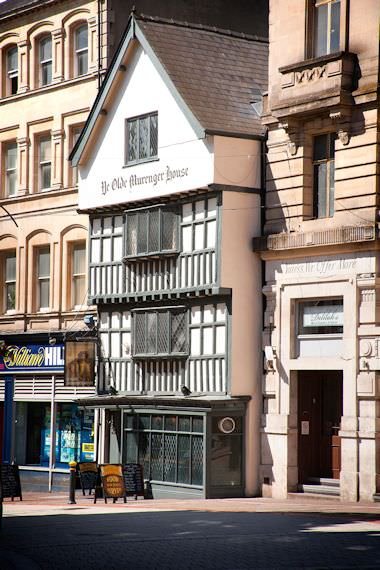
[i] https://whatpub.com/pubs/NEW/345/olde-murenger-house-newport [accessed January 3 2023].
[ii] https://www.southwalesargus.co.uk/news/4609910.ancient-pub-reopens [accessed January 2 2023].
[iii] Gareth Evans. ‘Hold Everything Dear’, quoted in John Berger, ‘Ten Dispatches about Place’, in Hold Everything Dear: Dispatches on Survival and Resistance ((London and New York: Verso, 2007), pp. 113-121 (p. 118).
[iv] John Berger, ‘Ten Dispatches about Endurance’, in Hold Everything Dear: Dispatches on Survival and Resistance, pp. 91-100 (p. 92).
You can listen to Laura Wainwright read this entry at the Green Room in January 2023.




